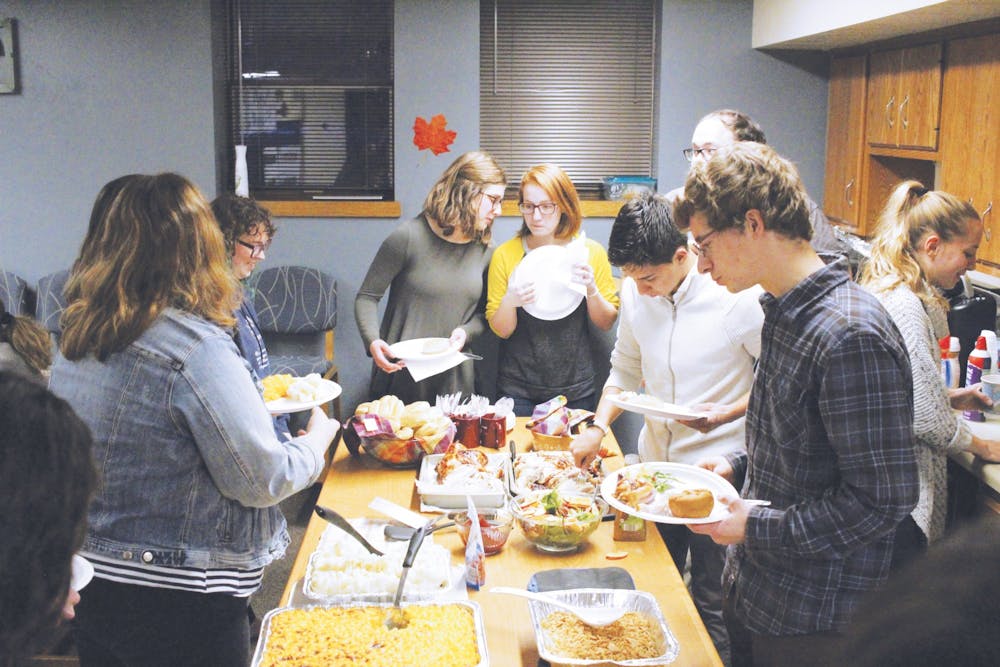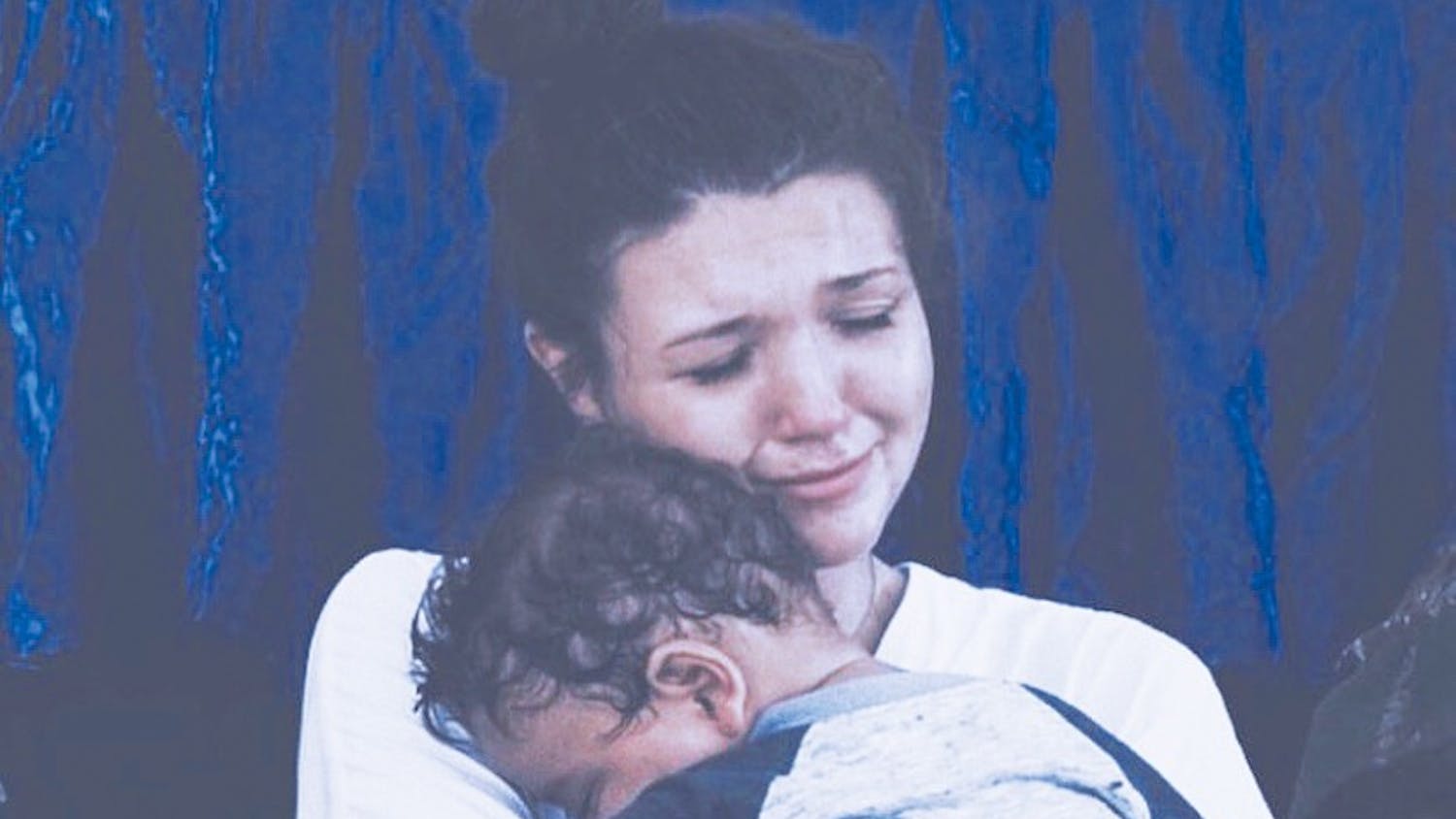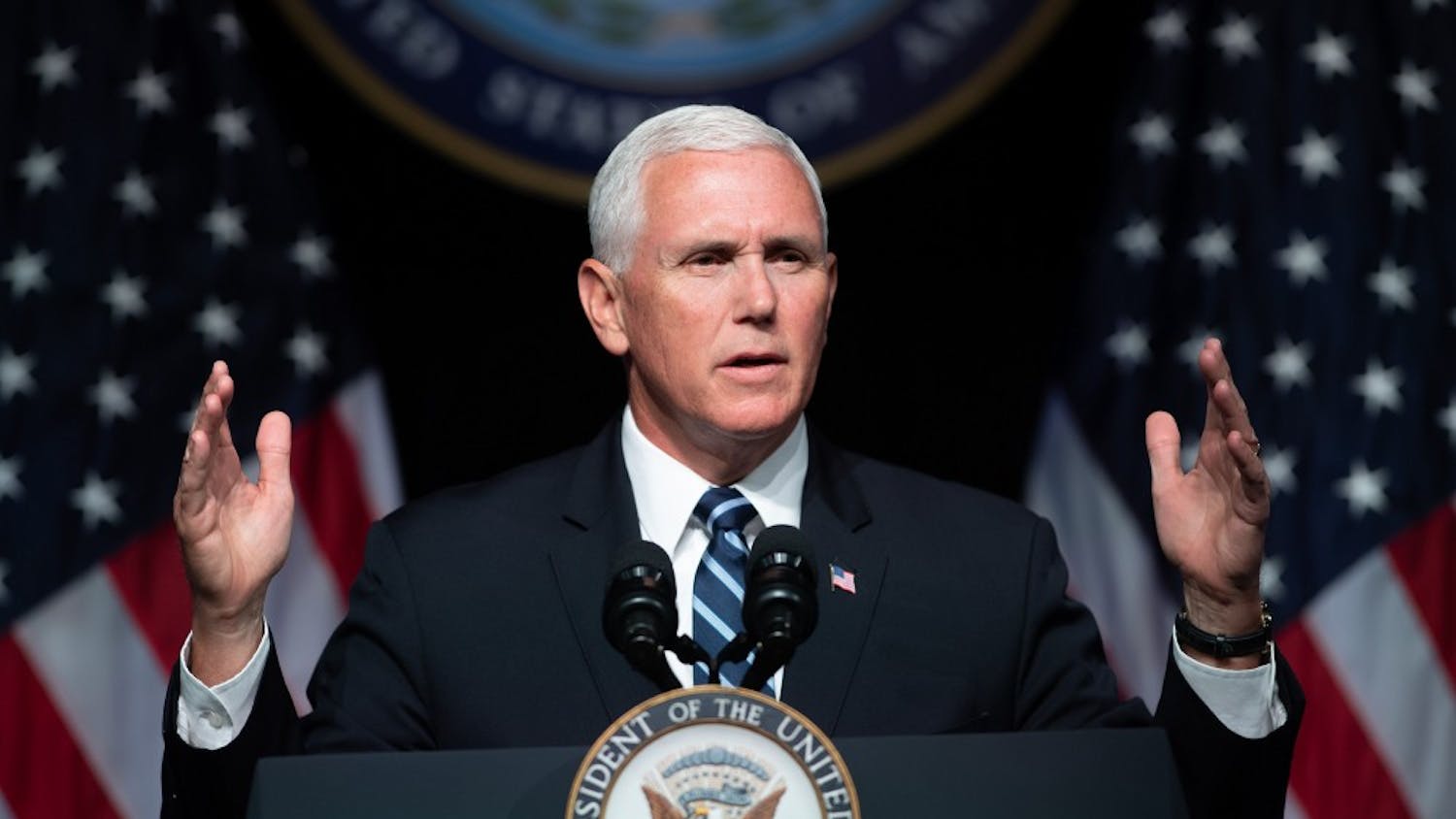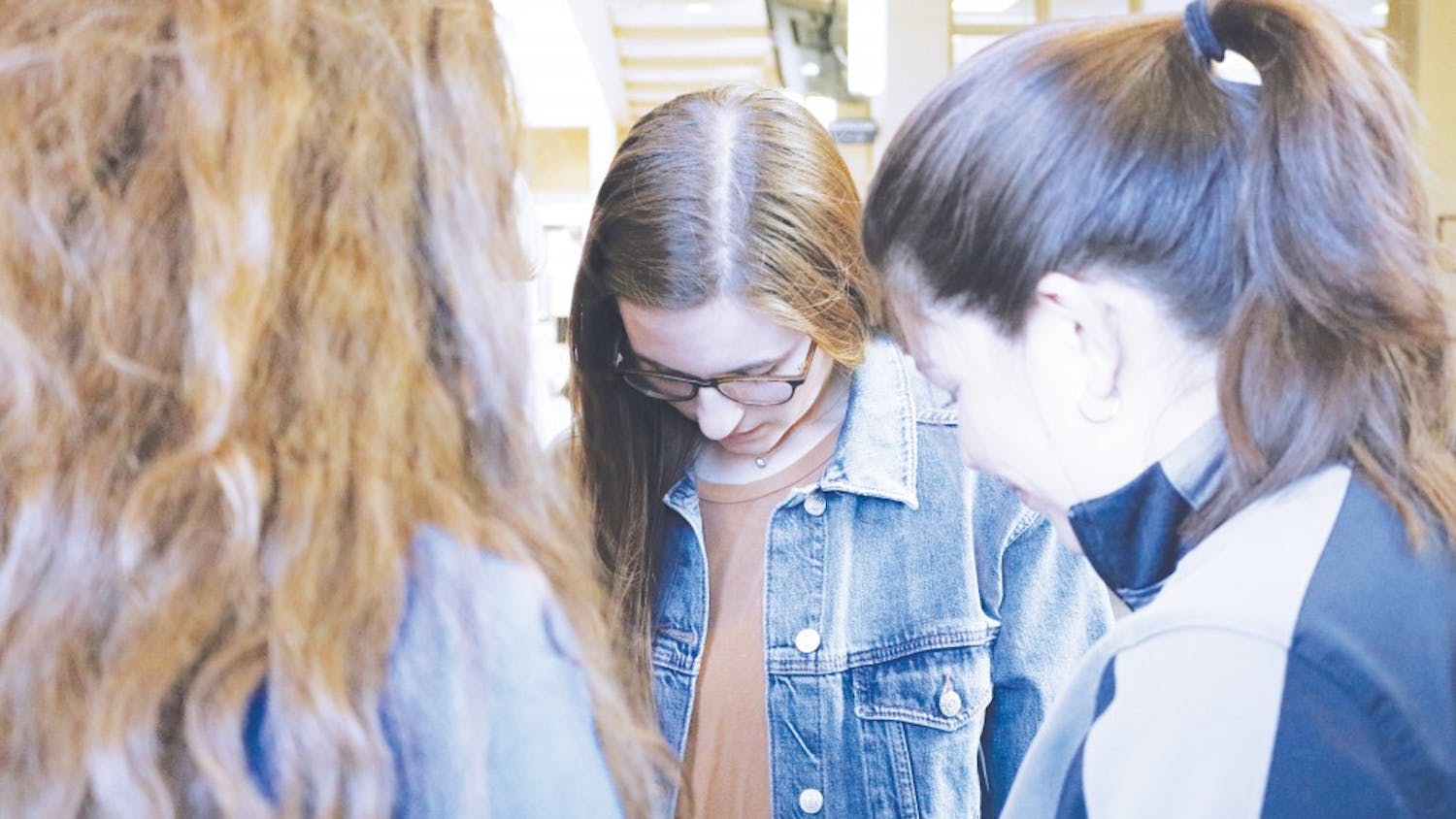The cornfields are bare. A chilling wind blows across campus. The skies have even dusted the ground with snow on several occasions. Yet it is not quite Christmas season.
Thanksgiving will be celebrated in the United States on Nov. 28 this year. It can often be overlooked during the increasingly rushed holiday season, possibly due to the dearth of beloved Thanksgiving movies and flashy Thanksgiving decorations, save for John Hughes’ “Planes, Trains and Automobiles” or the stray cornucopia.
Nearly every culture worldwide has a celebration of thanks for a plentiful harvest. Michael Jessup, professor of anthropology and sociology, describes many unique international traditions, each with their own distinctive dishes.
In southern India, Tamil Hindus celebrate the Thaipusam Kavadi festival with seven colorful curries, while Koreans celebrate Chuseok with songpyeon (a stuffed rice bun). All over southeast Asia, people enjoy pastries made of red bean paste, such as mooncakes.
May Young, assistant professor of biblical studies, traced the roots of a feast to give thanks to well before the Pilgrims, who held was was widely regarded as the first Thanksgiving feast. According to Young, the Pilgrims would have based their customs off the legacy of harvest feasts passed down from the nation of Israel, especially the Feast of Booths (Sukkot).
“For followers of Jesus, the Thanksgiving meal at the center of our worship is the Eucharist, which literally means thanksgiving,” said Kevin Diller, associate professor of philosophy and religion. “This is our regular celebration of God’s gracious provision of nourishment by means of connection with Him and with others in Him. A meal is perfect for this because we all sit down together acknowledging this connection in and dependence on Jesus.”
Many of Diller’s colleagues shared this idea of the Thanksgiving feast as a representation of the Eucharist.
Brad Seeman, associate professor of philosophy pointed to the imagery of Jesus breaking bread and giving thanks, an act noted at many points over the course of the Gospels. Even in the midst of his greatest struggles, Seeman said, Jesus still gave thanks.
Taylor alumnus Kurt Stout (‘92) now serves as the senior pastor at North Manchester First Brethren Church in Indiana. Since before his time, the church has held a special communion service to celebrate and give thanks for the harvest, both in terms of the physical blessings of the year and Jesus’ harvest of souls.
“Thankful people are healthier people in many ways. Healthy relationships, homes, work environment, even bodily benefits I would guess,” Stout said. “When the church focuses on thanks we move beyond our selfishness a bit and recognize that God’s hand has come to us, while we have not deserved it.”
Whether on scales large or small, family or friend, millions of festive gatherings will be commencing across America in the coming weeks. With each unique celebration comes different traditions in which families and friends observe the holiday.
Stout’s mother annually dresses the family in pilgrim hats to retrace their genealogy, after discovering years ago that they were descended from a family who arrived at the original Plymouth colony in 1620. Every year their family recounts the story of their ancestor Henry Howland and his brother, John, who sailed on the Mayflower itself and was rescued after being washed overboard.
Seeman, whose house is under a strict pre-Thanksgiving regimen of no Christmas music, waits up with his family until midnight to finally crank up the festive tunes and dance around the living room. A long-time favorite to kick off the season, he notes, is “Must Be Santa,” by Bob Dylan.
Tracy Manning, assistant professor of theatre arts said she personally cherishes baking with her family and going around the table to say what each person is thankful for, a tradition which she has grown to appreciate over the years.
No matter what the tradition, the intent remains the same.
“In the busyness of everyday life, it is important for us to make time to remember the blessings that God has given us,” Young said. “Many of these blessings are received through our relationships. We live in a very individualistic society and can often forget the importance of relationships because we are so focused on our own goals. These communal observances call us back to the importance of God’s provision, both materially and relationally. As Christians, we are called to be a body. This means that we rejoice together and mourn together. Thanksgiving calls us back to the basics! We need to realize what is most important in our lives.”





